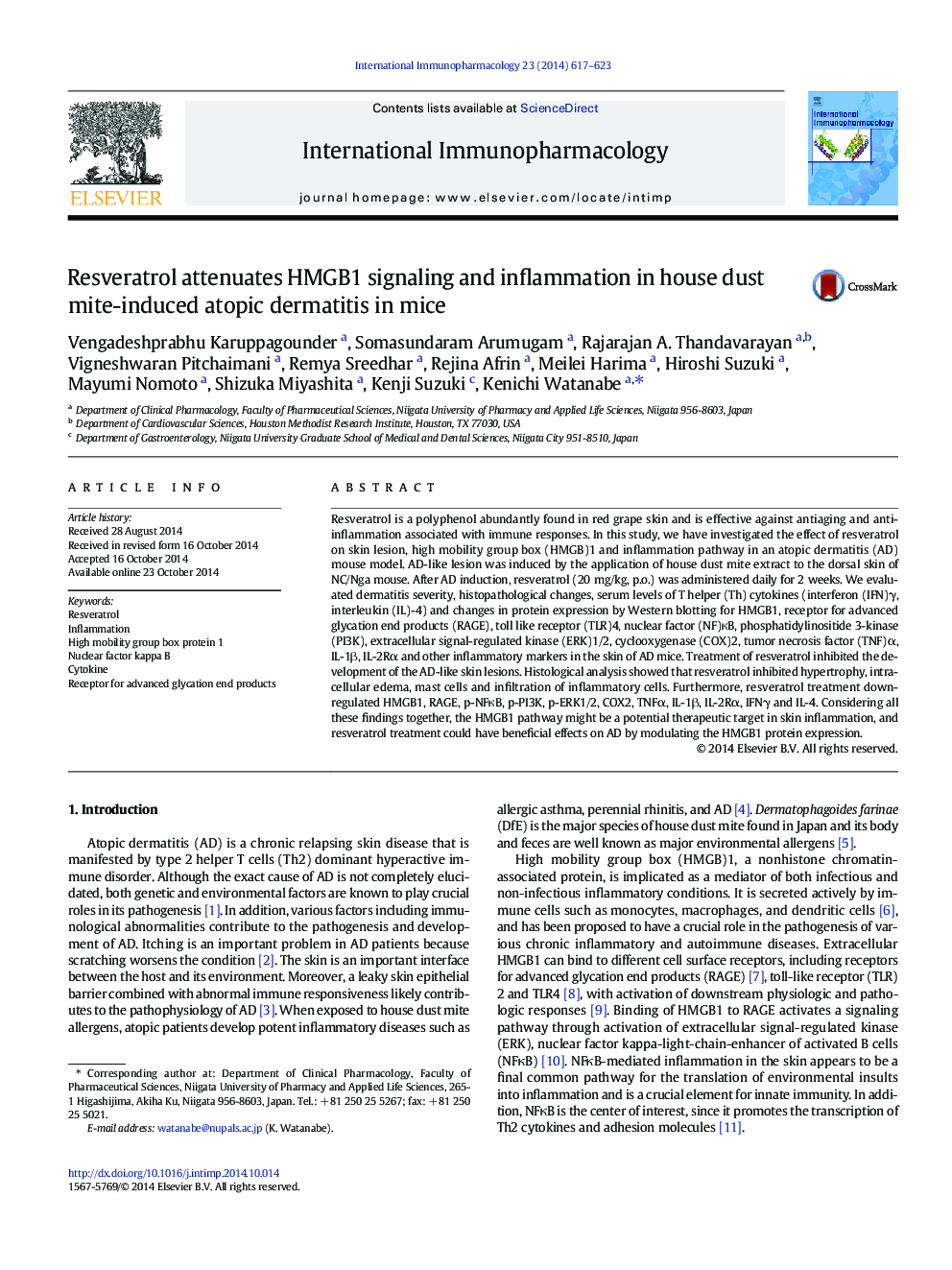| Article ID | Journal | Published Year | Pages | File Type |
|---|---|---|---|---|
| 5832592 | International Immunopharmacology | 2014 | 7 Pages |
â¢Resveratrol ameliorates skin inflammation in house dust mite induced AD mouse.â¢Resveratrol effectively reduced HMGB1 protein expression.â¢It also reduced inflammatory protein expression.â¢Treatment with resveratrol inhibited the infiltration of inflammatory cells.
Resveratrol is a polyphenol abundantly found in red grape skin and is effective against antiaging and anti-inflammation associated with immune responses. In this study, we have investigated the effect of resveratrol on skin lesion, high mobility group box (HMGB)1 and inflammation pathway in an atopic dermatitis (AD) mouse model. AD-like lesion was induced by the application of house dust mite extract to the dorsal skin of NC/Nga mouse. After AD induction, resveratrol (20 mg/kg, p.o.) was administered daily for 2 weeks. We evaluated dermatitis severity, histopathological changes, serum levels of T helper (Th) cytokines (interferon (IFN)γ, interleukin (IL)-4) and changes in protein expression by Western blotting for HMGB1, receptor for advanced glycation end products (RAGE), toll like receptor (TLR)4, nuclear factor (NF)κB, phosphatidylinositide 3-kinase (PI3K), extracellular signal-regulated kinase (ERK)1/2, cyclooxygenase (COX)2, tumor necrosis factor (TNF)α, IL-1β, IL-2Rα and other inflammatory markers in the skin of AD mice. Treatment of resveratrol inhibited the development of the AD-like skin lesions. Histological analysis showed that resveratrol inhibited hypertrophy, intracellular edema, mast cells and infiltration of inflammatory cells. Furthermore, resveratrol treatment down-regulated HMGB1, RAGE, p-NFκB, p-PI3K, p-ERK1/2, COX2, TNFα, IL-1β, IL-2Rα, IFNγ and IL-4. Considering all these findings together, the HMGB1 pathway might be a potential therapeutic target in skin inflammation, and resveratrol treatment could have beneficial effects on AD by modulating the HMGB1 protein expression.
